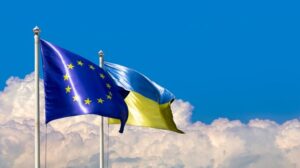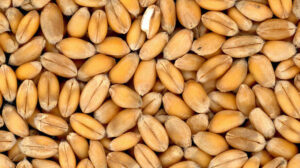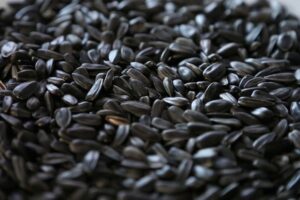
The European Union has extended by another year the cancellation of import duties on Ukrainian exports. This decision will become effective from 6 June 2023 and will be effective until 5 June 2024, inclusive.
The regulation of the European Parliament and the European Council of May 31 on extending for another year the abolition of import duties on Ukrainian exports was published in the EU official Journal on Monday.
The moratorium on duties imposed in 2022 will expire on June 5, 2023.
In order to prevent fraud in the preferential mechanisms established by the regulation, Ukraine must comply with a number of rules, including refraining from introducing new duties or charges and new quantitative restrictions or measures with equivalent effect, from increasing existing duties and charges, and from imposing any other restrictions in trade with the EU, unless clearly justified, the document says.
According to the regulation, if Ukraine fails to comply with any of these conditions, the EU may suspend the preferential mechanisms.

The European Union (EU) and Ukraine need to find a solution that would allow Ukrainian farmers to work, exporting grain to the EU in the volumes they need, Croatian Minister of Agriculture Marija Vučković said at an online meeting with Ukrainian Minister of Agrarian Policy Mykola Solsky on Tuesday.
Vučković is confident that the restrictions on the export of Ukrainian agricultural products to Europe, which were introduced by the European Commission until June 5, should not be extended after this date, the press service of Ukraine’s Ministry of Agrarian Policy and Food said.
Solsky, in turn, thanked his colleague for understanding. He also said that Croatia became one of the signatories of the letter of the European Commission sent by the relevant ministers of 14 states of the European Union. In this appeal, they expressed concern about the temporary ban on importing Ukrainian agricultural products to five states of the European Union.

Ukraine has received about 90,000 tons of in-kind aid, such as equipment and medicines, through the EU Civil Protection Mechanism since the start of the Russian invasion, DW reported.
“This is by far the most complex, the most extensive and the longest operation under the EU Civil Protection Mechanism in the history of its existence,” said European Commissioner for Crisis Management Janez Lenarčič, quoted by the newspaper.
He said assistance was provided with food, medicine, vehicles, generators, transformers and equipment to repair power grids and other critical infrastructure.
“We even delivered items such as sunflower seeds and equipment to protect cultural monuments,” Lenarcic said.
In addition, more than two thousand patients and wounded from Ukraine have been treated in more than 20 EU countries, the commissioner added.
Ukraine officially joined the EU Civil Protection Mechanism on April 20, 2023. Within the framework of this mechanism, the EU states and other countries cooperate in preparedness and response to crises and disasters.
Thanks to the Mechanism, Ukraine has received assistance before, just like any other country in the world following a request. As a member of the Mechanism, Ukraine will have access to expert exchanges, training programs and exercises, and will be able to provide assistance to countries in crisis.

In 2022 the EU countries have increased imports of honey in physical form by almost 10% – up to 190.6 thousand tons, which in money equivalent is EUR504.2 million, said honey market analyst Anna Burka in Facebook.
According to her data, the EU increased imports from China by 42%, Argentina – by 35%, as well as from Turkey and Vietnam, while imports from Ukraine decreased in kind by 14%.
“Ukraine remains one of the main suppliers of honey to the EU, but in 2022 China ranks first in the ranking (in volume terms). At the same time, if we look at imports in money terms, Ukraine is still the leader,” the analyst noted.
According to data of the European Commission, as quoted by Anna Burka, in 2022 Ukraine supplied 46.09 tons of honey to the EU, which accounted for 24.2% of total imports. A year earlier, the figure was 53.836 thousand tons, and Ukraine had a 31% share of supplies. In 2029, supplies reached 54.8 thousand tons, which was 31.3% of all EU honey imports.
Judging by the four-year trends cited by the EC, EU consumption of honey, particularly imported honey, is on the rise. While in 2019, EU countries imported 167.097 thousand tons of it, in 2020 it increased by 4.7% to 174.912 thousand tons, in 2022 imports reached 190.591 thousand tons, an increase of 9.8% over the year before.
As reported, in 2022 88% of Ukrainian honey exports accounted for the EU countries, which brought exporters $120 million.
The main buyers of Ukrainian honey were Germany, which bought it for $38 million, Poland – $24 million, France – $11 million, Italy – $7 million, Spain – $6 million, Belgium – $6 million. Among the countries from other regions that imported Ukrainian honey were the US, which bought it for $10 million and Japan – $1.7 million. Minor volumes were supplied to Turkey, Israel, Qatar, UAE, Somalia.

Ukraine benefits from the EU ban on the import of sunflower seeds to five neighboring countries, as domestic oil extraction plants are not sufficiently supplied with raw materials and are constantly experiencing a shortage, Stepan Kapshuk, director general of the Ukroliaprom association, told Interfax-Ukraine.
“Before the war there were 108 oil plants in Ukraine. Altogether they could produce 24 million tons of oil, of which 10 million tons were sunflower oil. However, these plants never managed to work at full capacity because of the lack of raw materials, which Ukraine exported. In the best seasons oil extraction plants managed to get 19 million tons of oil”, – explained the head of the industry association.
He said that previously the potential of Ukrainian oil extraction plants could produce 40-50 tons of oil per day. Because of the military actions in Ukraine stopped working about a dozen large operators, so daily plants produce 35 thousand tons of oil.
Kapshuk reminded that Ukroliaprom does not prevent the export of sunflower seeds, but proposes to introduce a mechanism of additional collection, in particular, export quotas.
“Now is the optimal moment for the government to take such a decision. Such a mechanism will bring about 3 billion UAH to the state budget, which can be used to pay salaries to the military,” – he stressed and said that the association has sent the relevant proposals to the Prime Minister.
Commenting on the agreement between the Ministry of Agrarian Policy of Ukraine and the Ministry of Agriculture of Bulgaria on signing a memorandum on sunflower oil, Kapshuk said that such a decision was caused by Bulgaria’s increase in its own production of sunflower oil.
According to his information, in recent years the number of oil extraction plants in Bulgaria has increased from 4 to 11. Last year the Bulgarian processors were able to buy Ukrainian sunflower seeds at affordable prices and increased the production of oil up to 250-300 thousand tons with the internal demand of about 150 thousand tons.
“They need to sell their own goods both on the domestic market and increase their exports,” explained the head of the industry association.
According to Kapshuk, Ukraine used to export butter to 124 countries. In recent years the geography of exports is narrowing and Ukrainian butter is sold to about 80 countries. Its main buyers are India, China, Europe and African countries.
The head of Ukroliaprom cited the experience of Ukroliaproduct ALC (Dikanka TM), which has established air shipments of organic sunflower oil to America, as a positive example of exporting to long distances.
At the same time, Kapshuk pointed out that Ukraine is actively pushed out of the Indian market by the Russian Federation, which has increased production of sunflower.
“It is not profitable for Ukraine to export oil over long distances because of high freight prices. It reaches $370 (probably per ton) on shipments to India alone. Therefore, exports to countries with a high number of Ukrainian diaspora is not profitable for our producers so far,” he said, stressing the importance of maintaining traditional markets for oil.

The EU is considering imposing sanctions against dozens of companies from China, Iran, Kazakhstan and Uzbekistan that cooperate with Russia, Reuters reports.
The agency cites diplomatic sources familiar with the European Commission’s draft proposals. Inclusion of these companies in the “black list” is possible within the framework of the prepared 11 package of anti-Russian sanctions.
In late April, Assistant Secretary of the U.S. Treasury Elizabeth Rosenberg during a visit to Kazakhstan warned of the growing risks of secondary sanctions against Kazakh companies and banks that help Russia evade Western sanctions imposed in response to the full-scale war against Ukraine unleashed by Russia.
CHINA, EU, IRAN, KAZAKHSTAN, SANCTIONS, UZBEKISTAN